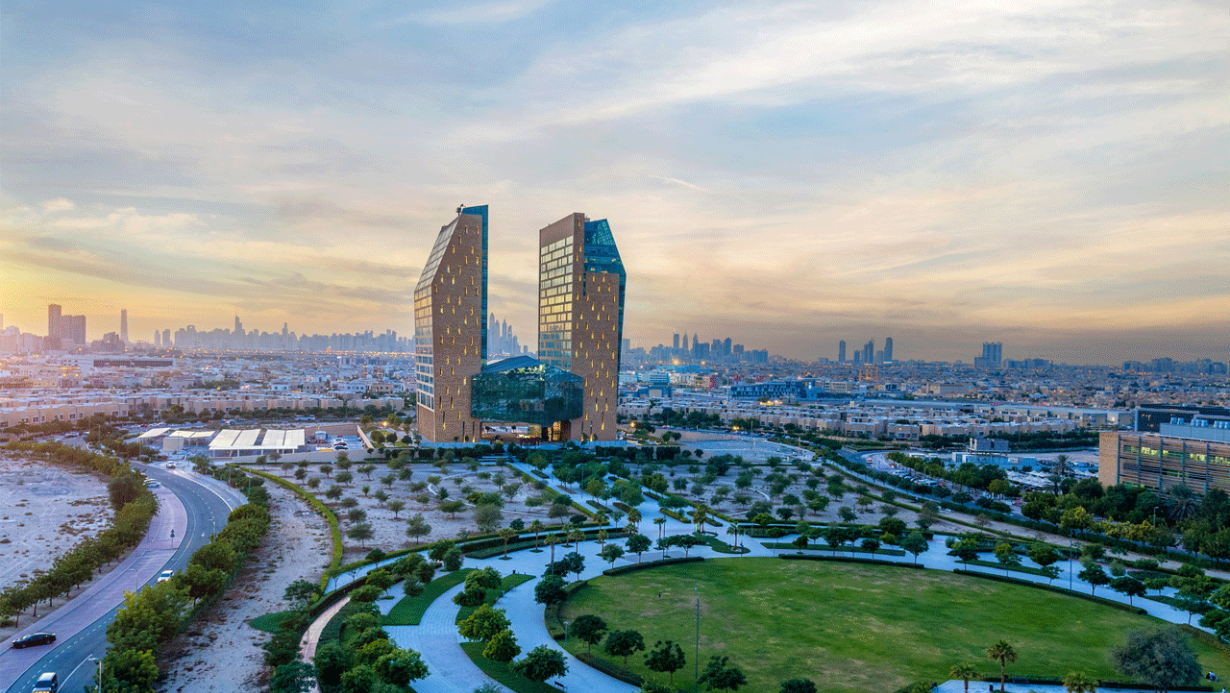Future of Dubai's Real Estate: Growth Drivers, Economic Influences, and Emerging Opportunities
11 December 24
/Dubai

Dubai South and Jebel Ali: Driving Future Real Estate Growth
Dubai, a city synonymous with luxury and marvels, has long been a beacon for estate enthusiasts worldwide. Whether it's the awe-inspiring Burj Khalifa or the iconic Palm Jumeirah, the real estate sector has played a pivotal role in shaping Dubai's global image. Understanding future, especially looking toward 2025, requires examining its rich history, current status, and the interplay of diverse factors shaping its trajectory.
Dubai South and Jebel Ali are emerging as pivotal hubs in Dubai’s real estate evolution. Dubai South, anchored by Al Maktoum International Airport and Expo City Dubai, offers integrated residential, commercial, and logistics developments that cater to diverse investors. Jebel Ali, with its thriving Free Zone and expanding waterfront projects, is transforming into a hotspot for mixed-use investments. These areas leverage strategic locations and robust infrastructure, making them key drivers of Dubai’s real estate market and magnets for global investment.

Key Factors Shaping Dubai’s Real Estate Future
Dubai’s rapid economic growth is a cornerstone of its real estate evolution, driving demand and shaping market trends. The city’s diverse and expanding population fuels urbanization, creating opportunities for innovative developments to meet shifting needs. Additionally, Dubai’s investor-friendly policies and strong ROI potential continue to position it as a global hotspot for real estate investment. Analyzing these factors provides vital insights into the city’s dynamic property market and its future trajectory.

Economic Influences and Key Projects Driving Real Estate Growth
The interplay between global and local economic factors significantly shapes Dubai’s real estate market.
Global Economic Conditions:
Fluctuations in oil prices, despite Dubai's diversification, still create ripples, influencing overall investment sentiment. Currency volatility impacts foreign investments, a key driver of the city’s property sector, while strong trade relations with global partners help sustain economic resilience.
Local Growth and Infrastructure:
Major ongoing projects like the expansion of the Dubai Metro, the development of Dubai South as an aviation and logistics hub, and the high-tech Dubai Industrial City directly fuel property demand. The UAE’s Vision 2021, focusing on diversification, strengthens sectors like technology, healthcare, and renewable energy, fostering stable real estate growth.
Tourism and Hospitality Boosts:
Iconic projects like Atlantis The Royal and Expo City Dubai, alongside Jebel Ali’s waterfront redevelopment, attract millions of visitors annually, driving demand for hotels, serviced apartments, and residential properties.
These economic factors, coupled with visionary projects, position Dubai’s real estate market for sustained growth and diversification.

Policy Framework Driving Real Estate Growth
Dubai's forward-thinking government policies play a pivotal role in shaping its thriving real estate market. Investor-centric regulations, such as transparent real estate laws and favorable tax frameworks, create a secure and appealing environment for global investors. The expansion of foreign ownership rights, including designated freehold zones, has significantly boosted expatriate participation, further diversifying the market. Additionally, the government’s emphasis on affordable housing through initiatives like mid-income developments ensures inclusivity, catering to a broader demographic while maintaining high standards. These strategic policies not only safeguard investments but also drive sustainable growth in Dubai’s real estate sector.

Environmental and Sustainability Considerations
Green Standards and Energy Efficiency:
Dubai’s adoption of international green building standards and government incentives has boosted energy-efficient developments, increasing demand and property values for sustainable projects.
Climate Risks and Adaptation:
Addressing climate change is crucial for Dubai’s real estate. Adaptive building practices and resilient infrastructure help mitigate risks like flooding and high temperatures, protecting investments and promoting long-term sustainability.
Sustainable Urban Planning:
Green spaces, improved public transport, and eco-friendly policies are integral to urban planning, enhancing living quality and reducing car dependency while aligning with environmental goals.

Market Trends and Investment Strategies
Residential vs. Commercial Demand:
Demand for residential spaces is rising, especially in mixed-use areas, while commercial needs shift with remote work, driving interest in flexible office spaces.
Emerging Developments:
Neighborhoods like Dubai South and Marsa Al Arab, supported by strong infrastructure and government backing, are set to become key growth areas, attracting investors and residents.
Investment Patterns:
Dubai remains appealing to both foreign and domestic investors, bolstered by favorable financing and evolving regulations. Recognizing market cycles helps investors seize opportunities and navigate trends effectively.
Dubai’s real estate market is powered by sustainability, technology, and strategic growth, offering excellent opportunities for long-term investment and development. At Baytify, we’re here to guide you every step of the way to find your dream home in Dubai. Contact us to discover how we can make your property journey seamless and rewarding.
Get updates straight to your inbox
Stay in the loop! subscribe for quick updates direct to your inbox. Act now!
























































































